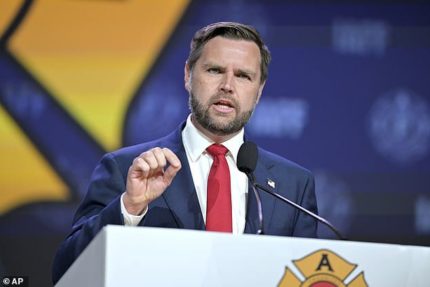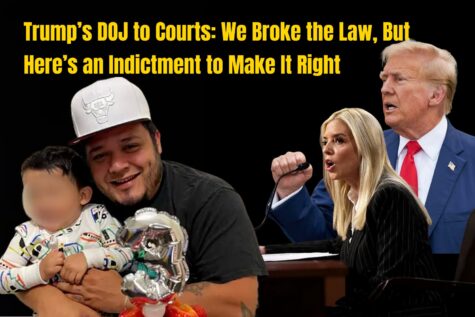Senator J.D. Vance, the Republican vice-presidential nominee, faced a mixed reception during his speech at the International Association of Firefighters (IAFF) conference in Boston on Thursday. As he took the stage, Vance was met with a blend of boos and cheers from the audience, highlighting the divide in opinion among the firefighters present. Undeterred by the reaction, Vance addressed the crowd, acknowledging both his supporters and critics.
“Sounds like we’ve got some fans and some haters – that’s OK,” Vance remarked, maintaining his composure. He urged the audience to give him a chance to present his case, emphasizing the importance of listening to different perspectives. “Listen to what I have to say here, and I’ll make my pitch,” Vance continued, in an attempt to engage those who were skeptical of his message. The Ohio Republican was speaking in the liberal stronghold of Boston, just a day after his Democratic counterpart, Minnesota Governor Tim Walz, addressed the same audience.
From ‘Never Trumper’ to Trump’s Running Mate
In his speech, Vance candidly addressed his previous opposition to former President Donald Trump, a stance that has been widely reported and criticized by some within his party. He acknowledged the diversity of opinions within the union, noting that while some members were Trump supporters, others were clearly not. Vance used this opportunity to explain his shift from being a “never Trumper” to fully backing Trump and even joining him on the 2024 presidential ticket.
“Now this may come as a shock to you, but once upon a time, I wasn’t a Trump guy either,” Vance admitted, adding that Trump frequently reminds him of this fact. However, he revealed that his change of heart was influenced by a firefighter friend from Dayton, Ohio, who convinced him that he was wrong about Trump. Vance explained that his friend’s arguments, coupled with his observations of Trump’s policies benefiting America, led him to reconsider his stance. “What you may not know is why I changed my mind,” he said, crediting his friend’s persuasive reasoning.
Vance Appeals to Working-Class Concerns
During his address, Vance also touched on broader economic issues, particularly those affecting the working class. He highlighted the decline in union membership over the past 70 years and the corresponding decrease in the influence of unions. Vance pointed out that wages for both union and non-union workers have not kept pace with inflation, particularly over the last three-and-a-half years, underlining the economic struggles that many Americans face.
“So I want to ask you a question that Donald Trump asked America in 2016 – what the hell do you have to lose?” Vance concluded, invoking Trump’s famous line from the 2016 campaign. By echoing this sentiment, Vance sought to connect with the audience on issues of economic insecurity, urging them to consider the benefits of Trump’s policies as they head into the 2024 election. Despite the initial boos, Vance’s speech aimed to bridge the gap between his past opposition to Trump and his current support, while appealing to the working-class voters who remain a key demographic in the upcoming election.
Teamsters’ Historic Move: A Possible Shift in Union Loyalty?
The 2024 election cycle has already seen significant developments in the relationship between labor unions and political parties, with the Teamsters union making headlines for an unprecedented move. In July, Teamsters president Sean O’Brien broke with tradition by speaking at the Republican National Convention in Milwaukee, Wisconsin. This marked the first time in history that a leader of the Teamsters, a union representing over 1.3 million members across various industries, took the stage at a GOP event.
This development is particularly noteworthy because the Teamsters have long been considered a stronghold of Democratic support. The union’s endorsement is highly sought after by candidates, given its broad influence over key sectors such as transportation, healthcare, and construction. Despite O’Brien’s appearance at the Republican convention, the Teamsters have yet to officially endorse a candidate in the 2024 race, leaving political observers to wonder whether this could signal a shift in union loyalty or simply a strategic move by the union to keep its options open.














